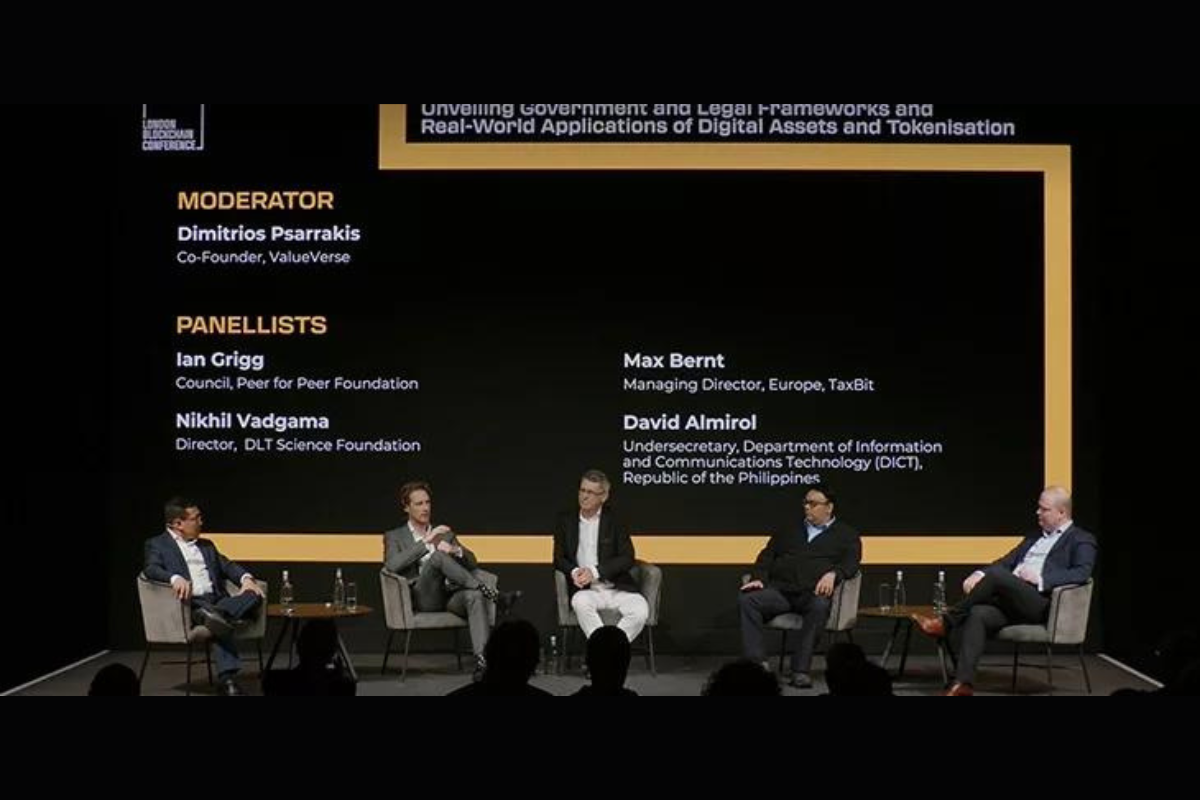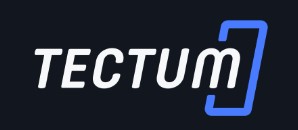Blockchain
Tokenizing real-world assets: Start small, solve problems, drink milk

Tokenization is poised to revolutionize the digital economy in the years ahead, contingent upon global governments and regulators adapting to this transformative wave.
At the 2024 London Blockchain Conference, Dimitrios Psarrakis, co-founder of ValueVerse digital finance strategy group, curated an esteemed panel titled “Navigating the Digital Horizon – Unveiling Government and Legal Frameworks and Real-World Applications of Digital Assets and Tokenization.” The panel featured notable experts including financial cryptographer Ian Grigg from the Peer For Peer Foundation, Nikhil Vadgama, director at DLT Science Foundation, David Almirol, Undersecretary at the Dept. of Information and Communications Technology (DICT) of the Philippines, and Max Bernt, Managing Director, Europe at TaxBit.
Psarrakis commenced the discussion by reflecting on his involvement in the sector since 2016 and his quest to enhance financial systems’ intelligence. He highlighted his contribution to the European Parliament’s blockchain resolution, addressing queries about the value proposition of tokenization, its economic implications, and potential impacts on business models.
Vadgama underscored that tokenization eliminates intermediaries, facilitates direct connections, enables smart contracts, and ensures immutability, asserting these as critical technological advantages transferred through tokenization.
Regarding the penetration of tokenization, Vadgama pointed to notable use cases in the legacy financial sector, exemplified by stablecoins like USDT (Tether) and USDC (Circle), which enable seamless value transfers compared to traditional financial systems burdened with numerous frictions.
Grigg expanded on the benefits of tokenization beyond cost reduction, recounting a past venture where he tokenized internal currency to settle significant debts. He emphasized how digital tokens streamlined accounting and gained preference over fiat obligations among creditors, illustrating the intrinsic value of efficient accounting systems.
Discussing government perspectives, Almirol shared insights from the Philippines’ initiatives in blockchain adoption, notably integrating tokenized solutions into the national identity system through the eGov Super App. He stressed the government’s role in supporting such innovations to enhance efficiency and transparency across public services.
Acknowledging bureaucratic challenges, Almirol critiqued governmental inertia towards embracing emerging technologies like AI and blockchain, contrasting it with the private sector’s agility in tech adoption.
Psarrakis echoed concerns about governments’ slow adaptation to blockchain’s potential for enhancing transparency in areas such as digital identity, compliance, taxation, and anti-money laundering efforts, citing the need for a proactive regulatory framework.
Bernt supported Almirol’s call for showcasing the benefits of tokenization to governments, noting varying regional approaches within Europe but a global trend towards establishing legal frameworks conducive to tokenized assets.
Grigg emphasized the necessity of regulatory clarity and the role of established legal mechanisms in facilitating widespread tokenization, underscoring the importance of contracts and trust structures in securing real-world assets digitally.
Vadgama lamented governmental silos hindering innovation and advocated for streamlined regulatory processes to capitalize on tokenization’s potential across diverse sectors beyond financial instruments.
Looking ahead, Vadgama envisioned future applications of tokenization extending to real estate, intellectual property, and commodities, drawing from decentralized finance (DeFi) models to enhance liquidity provision.
Almirol urged a focused approach to solving specific issues with tokenization, akin to nurturing a child with gradual steps towards broader implementation, emphasizing practicality and tangible benefits as catalysts for sustained growth in the tokenized economy.
Source: coingeek.com
The post Tokenizing real-world assets: Start small, solve problems, drink milk appeared first on HIPTHER Alerts.
Blockchain
Switzerland Regulatory Technology Business Report 2024: Market to Surpass $550 Million by 2029, Driven by Collaborative Opportunities and Data Privacy Solutions
Swiss RegTech Market
Blockchain
Blockchain Life 2024: The Visionary and Tectum CEO Alex Guseff Among Featured Speakers
Blockchain
DLA Piper’s crypto tokenization engine TOKO relaunches as Scintilla

Following a management buy-out by the management team at TOKO FZE, the business has been rebranded as Scintilla, the revolutionary platform providing on-chain solutions and services to make investments more inclusive, accessible, and efficient. Having been developed within DLA Piper’s Law& innovation portfolio, TOKO – now Scintilla has a fresh brand identity, new leadership, and innovative product offerings. Scintilla is set to reshape the future of finance by enabling businesses to unlock the power of blockchain technology across various asset classes, with DLA Piper remaining as a minority shareholder.
Regulated by Dubai’s Virtual Assets Regulatory Authority (VARA), Scintilla is one of the first digital asset companies to gain full market licenses, marking a significant milestone in the sector’s landscape. Being a regulated entity underscores Scintilla’s commitment to the highest standards of compliance and security while pioneering new solutions for tokenization in the global market.
Innovating Finance Through Tokenization
Scintilla offers a comprehensive suite of tokenization services designed to bring liquidity, transparency, and efficiency to traditional finance sectors. From tokenized financial products, and real estate all the way to new legal funding products, Scintilla’s digital asset solutions enable clients to tokenize assets that were previously inaccessible to investors or illiquid.
Scintilla’s services include:
Advisory Services: The gateway to successful market entry. From initial opportunity assessment to strategic development of game-changing tokenization-based solutions.
Use Case Development: Bringing products to life. From initial POC development and iteration towards MVP all the way through to the full market launch.
Broker/Dealer Services: Creating new markets. Regulated primary market trading, ensuring the highest levels of trust and security within the tokenization space.
Exchange Services: Universal participation. Seamless, secure secondary trading of tokenized assets, with industry-leading technology and compliance standards.
Scintilla is uniquely positioned to capitalize on the confluence of Dubai’s world-leading regulatory environment, cutting-edge technology, and the burgeoning RWA market.
A New Era for Scintilla
The relaunch of Scintilla represents more than just a rebranding—it signifies the company’s growing ambition to lead in the digital asset space. With an expanded team of industry experts, including continuing Board representation from DLA Piper, and a clear strategic vision, Scintilla is set to drive the adoption of tokenization in traditional financial markets.
“Our relaunch marks the beginning of an exciting new chapter for Scintilla and the wider industry. We are committed to pushing the boundaries of what is possible in digital finance while ensuring our solutions are underpinned by strong regulatory compliance,” said Tim Popplewell, CEO of Scintilla. “With our new suite of products and services, we are empowering investors to transform the way they manage and access value.”
Jean-Pierre Douglas-Henry, Managing Director, Sustainability and Resilience, DLA Piper added: “Innovation is a key strand in our business strategy. As our business focuses on developing and nurturing innovations that add significant value to our clients through our Law& innovation program, it is fantastic to see this solution spun out into the thriving digital asset space for the next stage of its growth and development.”
The post DLA Piper’s crypto tokenization engine TOKO relaunches as Scintilla appeared first on HIPTHER Alerts.
-

 Blockchain Press Releases4 days ago
Blockchain Press Releases4 days agoBitMEX achieves industry-leading low on-chain AML risk profile through strategic partnership with Chainalysis
-

 Blockchain Press Releases3 days ago
Blockchain Press Releases3 days agoAcceleration of global marketing collaboration between Milk Partners, AirAsia rewards, and The Sandbox
-

 Blockchain4 days ago
Blockchain4 days agoIndia Digital Payment Gateway Research Report 2024: $32.96 Bn Market Trends Analysis, Regional Insights, Competitive Landscape, Forecasts and Opportunities 2020-2030
-
Blockchain3 days ago
Keabank Launches World’s First Payment Intelligence Service to Simplify Global Payments
-

 Blockchain4 days ago
Blockchain4 days agoBalance registers Balance Trust Company, Growing Alberta’s FinTech Sector
-

 Blockchain Press Releases2 days ago
Blockchain Press Releases2 days agoKuCoin Managing Director Alicia Kao Highlights Crypto Education at Blockchain Life 2024
-

 Blockchain Press Releases2 days ago
Blockchain Press Releases2 days agoBybit’s WSOT Copy Trading Fest Offers 100,000 USDT Prize Pool for Crypto Investors
-

 Blockchain4 days ago
Blockchain4 days agoHata, a dual-licensed digital asset exchange in Asia raises $4.2 million to make digital assets more accessible


























